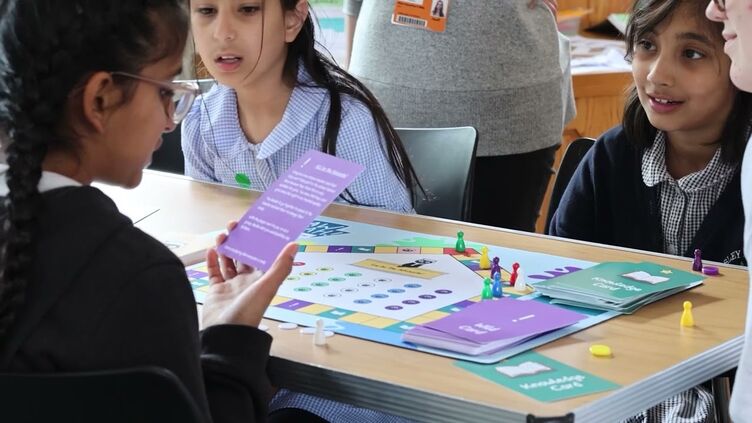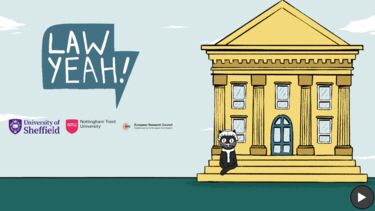Project Fortitude: Improving children’s legal capability
Find out more about Project Fortitude, and its work with children, for children, to improve their understanding of the law and children's rights.
This project has been funded the European Research Council and led by Professor Dawn Watkins (Law), working in collaboration with Professor Clare Wood at Nottingham Trent University (Psychology).
It aims to improve children and young people’s legal capability. Or, in other words, their ability to deal effectively with the many law-related issues that they encounter in their everyday lives - at home, at school and in their wider communities.
To achieve this aim, researchers have worked with children and young people (‘children’) to create a game called Law Yeah! It is available both as a digital game and as a board game, and was developed by Four Agency in Sheffield.
Turning legal learning upside down
As well as drawing on theories of play and serious game design, the development of the Law Yeah! game was informed by a new framework for developing children’s legal capability, created by the research team in this project.
A key feature of this framework is that it takes a scenario-based approach, and begins with children learning about how the law and/or the UN Convention on the Rights of the Child (UNCRC) applies in these specific situations.
So, for example, in a scenario where someone is being bullied by someone at school, Advocat (a key character in the game) advises the player that they have a right to be protected from being hurt by this person. The player is then asked to decide what to do about this, by selecting one of four options provided, and receives feedback.
It is only after this that the player is encouraged to link this information to their generic right to be protected from harm under Article 19 of the UNCRC, and then to learn more about the law, legal institutions and the UNCRC.
This turns the more usual approach of legal learning upside down, as it prioritises applied legal/rights knowledge, and ‘decenters’ the law and legal institutions.
Positive outcomes
Evaluations conducted by the research team consisted of a small-scale qualitative case study involving 3-6 year olds and children with additional learning needs, and a larger post randomized control study for children aged 7 years and over, based on a realist evaluation approach exploring the effects of play in school and in home settings.
Technical glitches impacted the evaluation in some situations. However, the studies indicated that repeated game play improved children's knowledge and skills in relation to their rights and the law. For children aged 7-11 years, school was a more effective context than home, firstly when the game was played on a whiteboard, as part of a teacher-led session, and secondly, when it was played independently (on individual devices).
Accessing the Law Yeah! games
You can access Law Yeah! at www.law-yeah.com (*please note this is an updated version, so if you have accessed the game before, please ensure you delete and reinstall, clear your browser cache, or view incognito).
If you would like to try out the Law Yeah! board game, then please contact Professor Dawn Watkins by email at d.watkins@sheffield.ac.uk or by phone at 0114 222 6827.
As soon as possible, these resources will also be made available for further adaptation under a free-licensing system. So please also contact Dawn if you are interested in further adapting the Law Yeah! game for use in your setting.
Project Fortitude - Mission Complete?
Watch our final Fortitude event to hear from the Project Fortitude team about how the project went.





